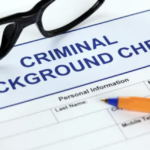Teenaged Terrorism Suspect Must Face Supreme Court

A Victorian judge has ordered that a teenager accused of plotting a terrorist act must face the Supreme Court, instead of the Children’s Court.
The 17-year-old’s home was raided in May this year, during which police allegedly discovered a range of items suggesting he was planning an attack, including three pipe bombs and instructions on bomb making.
His lawyers wanted his case to stay in the Children’s Court, which can only impose a maximum penalty of three years imprisonment. They appealed against the Children’s Court magistrate’s initial ruling that the case be transferred to the Supreme Court due to ‘exceptional circumstances.’
But last week, Justice Terry Forrest of the Victorian Supreme Court upheld that ruling, finding that it was appropriate for the matter to be dealt with in an adult court due to the seriousness of the charges and penalties.
The Charges
The teen is charged with a range of offences, the most serious of which is ‘other acts done in preparation for, or planning, terrorist acts’ under section 101.6 of the Criminal Code (Cth) 1995 (“the Code”), which carries a maximum penalty of life imprisonment.
A ‘terrorist act’ is defined by the Code as:
“An act or threat, intended to advance a political, ideological or religious cause by coercing or intimidating an Australian or foreign government of the public. This action must cause serious harm to people… create a serious risk to health and safety… seriously disrupt trade, critical infrastructure or electronic systems.”
The Court heard that the teen had accessed material provided by terrorist organisation ISIS, and had ‘engaged in a significant degree of planning’ to make improvised explosive devices.
When Can a Child’s Case be Heard in a Higher Court in NSW?
There are six Children’s Courts in NSW, the largest of them being Parramatta Children’s Court.
Under section 28 of the Children (Criminal Proceedings) Act 1987 (NSW) (“the Act”), the Children’s Court has jurisdiction to hear and determine:
- Proceedings for any offence except a serious children’s indictable offence, and
- Committal proceedings in respect of any indictable offence, including serious children’s indictable offences.
A serious children’s indictable offence includes:
- Murder or manslaughter,
- Any offence punishable by life imprisonment or 25 years or more; and
- Any offence under the Firearms Act 1996 that relates to the manufacture or sale of firearms, and is punishable by imprisonment for 20 years.
Charges under section 101.6 of the Criminal Code Act carry a maximum penalty of life imprisonment – and therefore fall outside the jurisdiction of the NSW Children’s Court.
Sentencing Children in Adult Courts
Children who are dealt with in adult courts are exposed to the same sentencing options as adults – in other words, they can face the same maximum sentences and types of penalties.
But section 6 of the Children (Criminal Proceedings) Act contains certain safeguards which must be considered when sentencing children, including:
- That children have rights and freedoms before the law equal to those enjoyed by adults, and, in particular, a right to be hear, and a right to participate in the processes that lead to decisions that affect them;
- That children who commit offences bear responsibility for their actions but, because of their state of dependency and immaturity, require guidance and assistance; and
- That the penalty imposed on a young person should be no more than that imposed on an adult for an offence of the same kind.
So while children are deprived of favourable sentencing procedures and options when in adult courts, they still enjoy certain limited protections.






